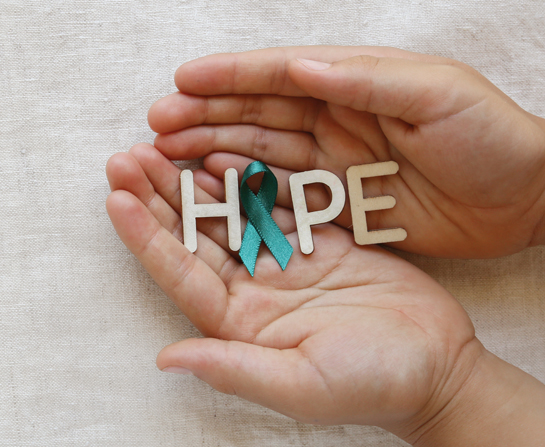Cervical Cancer Elimination Receives a Boost with ROSE
April 27, 2022 Return

WORDS PANK JIT SIN
A multinational effort by stakeholders from University of Malaya (UM) and VCS Foundation Australia has resulted in an innovative approach to reduce and eliminate cervical cancer in Malaysia. Known as Removing Obstacles to cervical ScrEening (ROSE), the pilot programme integrates self-sampling, human papillomavirus (HPV) testing and e-health technology to improve cervical cancer screening uptake among Malaysian women.
According to Professor Woo Yin Ling, consultant obstetrician and gynaecologist at UM, who helmed the pilot programme, ROSE integrates “self-sampling, HPV testing and e-health technology to enhance every woman’s personal journey of maintaining good cervical health.”
“At its heart, ROSE is driven by empathy for the screening experience of women. ROSE embodies safety, privacy and dignity through self-sampling, encouraging more women to willingly participate in screening in a timely manner,” says Prof Woo.
The HPV test accompanying ROSE is evidence-based and highly accurate, thus providing greater reassurance to the women tested. The diagnostic accuracy also allows for less frequent testing over a woman’s lifetime. Prof Woo reveals that it was the e-health component of ROSE that makes it unique and powerful. The programme utilizes mobile technology and VCS Foundation’s canSCREEN®, a population health management platform that enables healthcare professionals to track the progress of every woman screened through their lifetime regardless of whether they did it in a government or private setting.
The programme provides a welcome safety net to ensure women are screened at recommended intervals and followed up accordingly.
“It also allows optimization of health resources by preventing duplication of services while establishing a powerful resource to monitor our progress towards eliminating cervical cancer as a nation,” says Prof Woo.
Evidence for ROSE comes from a multi-sectoral collaborative effort, which was established to conduct the screening study. The pilot project took place in five MOH clinics in 2018 and involved 4,188 women. It was supported by academia, government, corporate, non-profit organizations, as well as private sponsors.
The pilot project found that 99% of the participants preferred the self-sampling method of ROSE, suggesting that Malaysian women would generally find this new approach to screening more acceptable. Abnormal test results were detected in 5% of the women screened, and three cases of cancer were diagnosed and had the appropriate follow up. The mobile technology and e-health facilitated comprehensive follow through of the ‘screening to treatment’ pathway in the women.
“The studies also found a high level of engagement with the ROSE model among participating healthcare professionals. They were very encouraged by its potential to increase the uptake of cervical cancer screening by women attending the clinics while not burdening the healthcare staff with additional administrative workload,” says Prof Woo.
Thus, the findings suggest that ROSE is the right way ahead in strengthening the national cervical cancer screening programme.
ROSE’s potential to change the landscape of cervical cancer has been recognized by WHO, Union for International Cancer Control, International Papillomavirus Society, U.S. National Cancer Institute and International Federation of Gynecology and Obstetrics. Dr Tedros Adhanom, Director-General of WHO, wrote in to endorse the women-centred approach of ROSE and said Malaysia is well on its way of meeting WHO’s target of screening and managing 80% of women aged between 35 and 45 by 2030.
Malaysia is the first country in the world to implement a programme such as ROSE, which incorporates self-sampling, HPV DNA-testing, and a digital platform that securely monitors the entire screening journey of women through an integrated platform.
The launch of ROSE and signing of Memorandum of Understanding between UM and VCS Foundation was also attended by Professor Dato’ Dr Adeeba Kamarulzaman, Dean of the Faculty of Medicine, UM, Dato’ Seri Dr Wan Azizah Wan Ismail, Deputy Prime Minister of Malaysia, Datuk Seri Dr Dzulkefly Ahmad, Minister of Health and Hannah Yeoh, Deputy Minister of Women, Family and Community Development. HT
If you like this article, do subscribe here.
